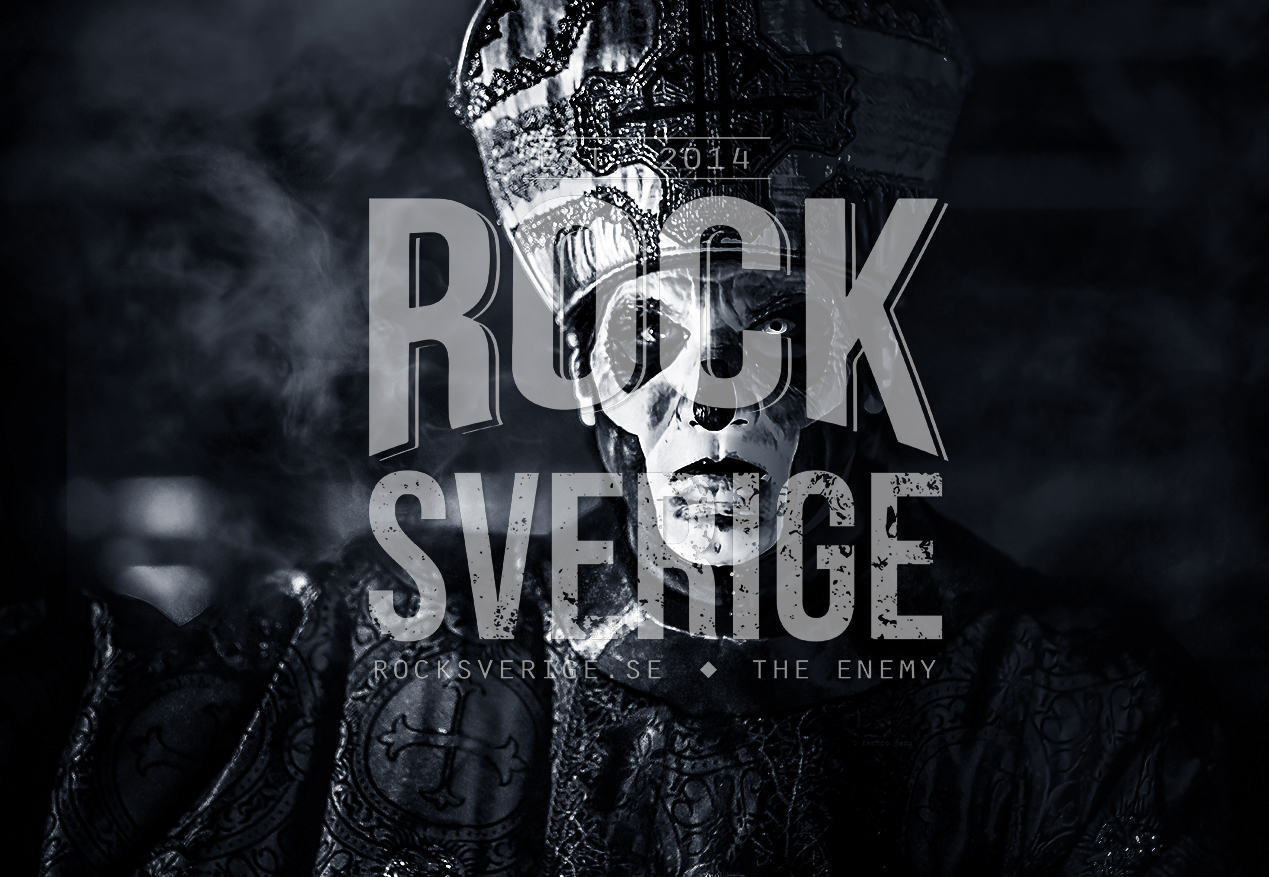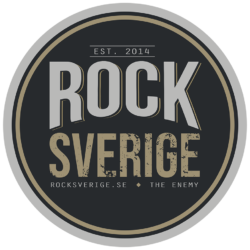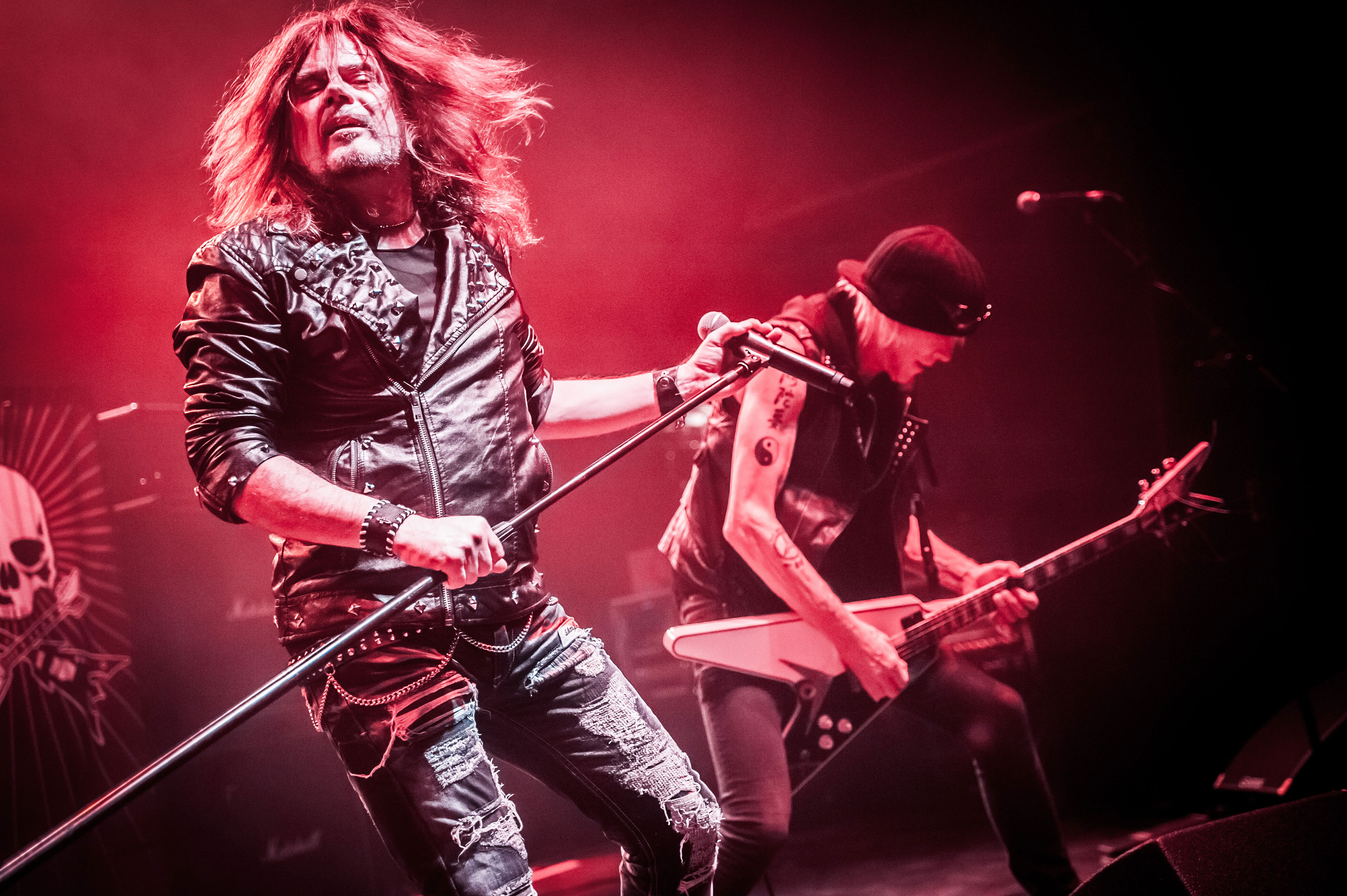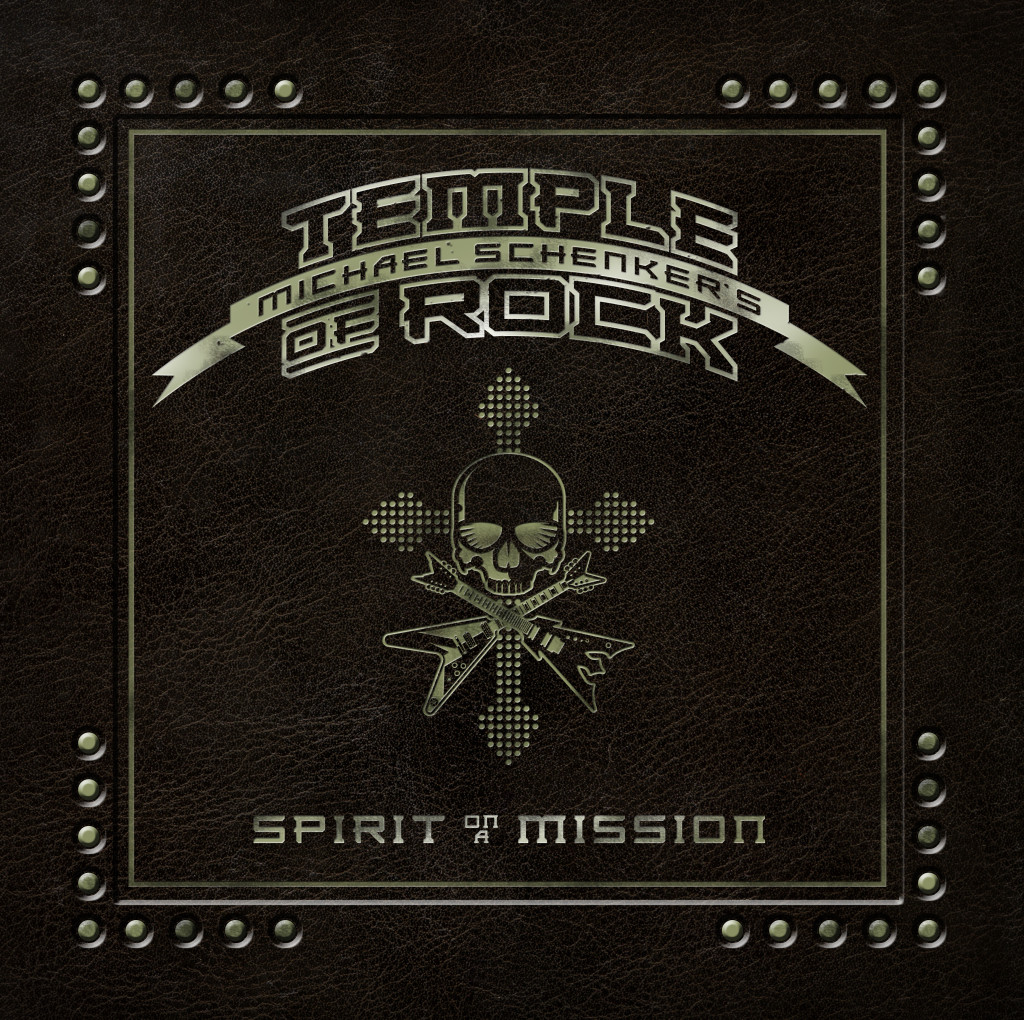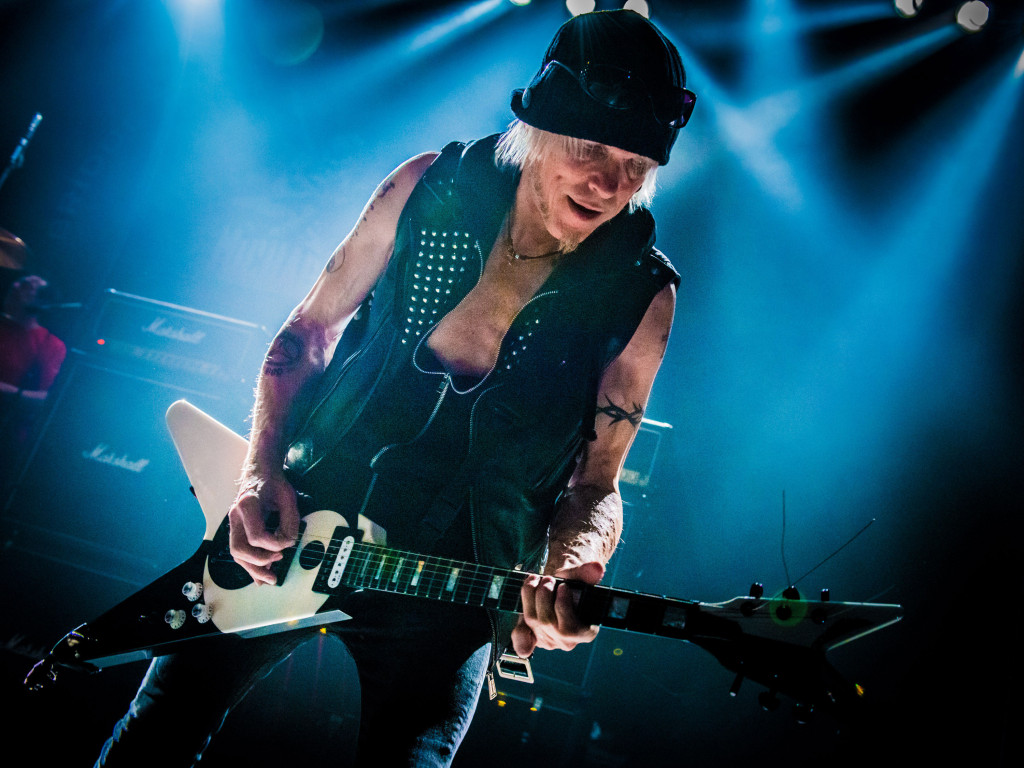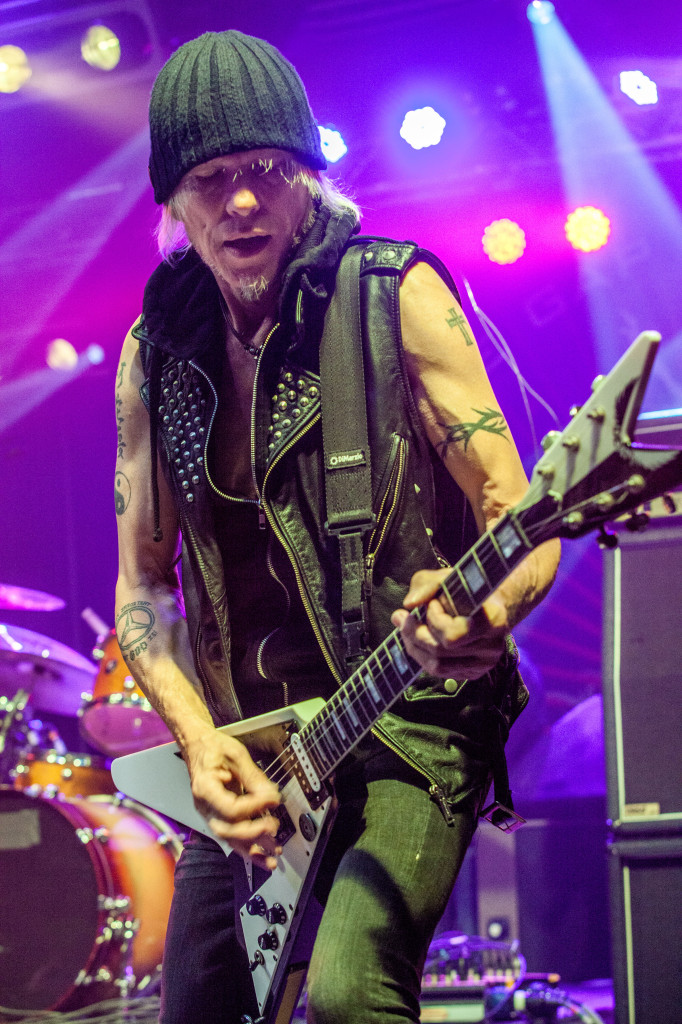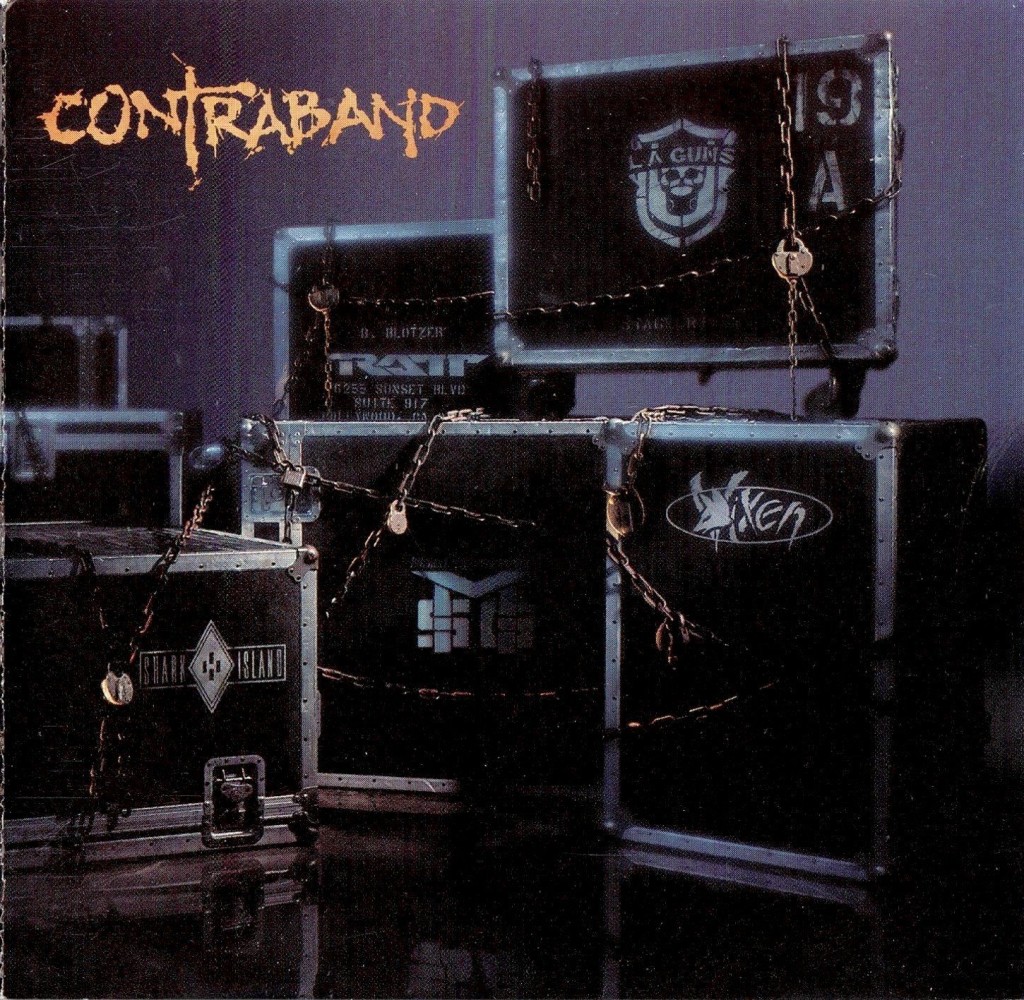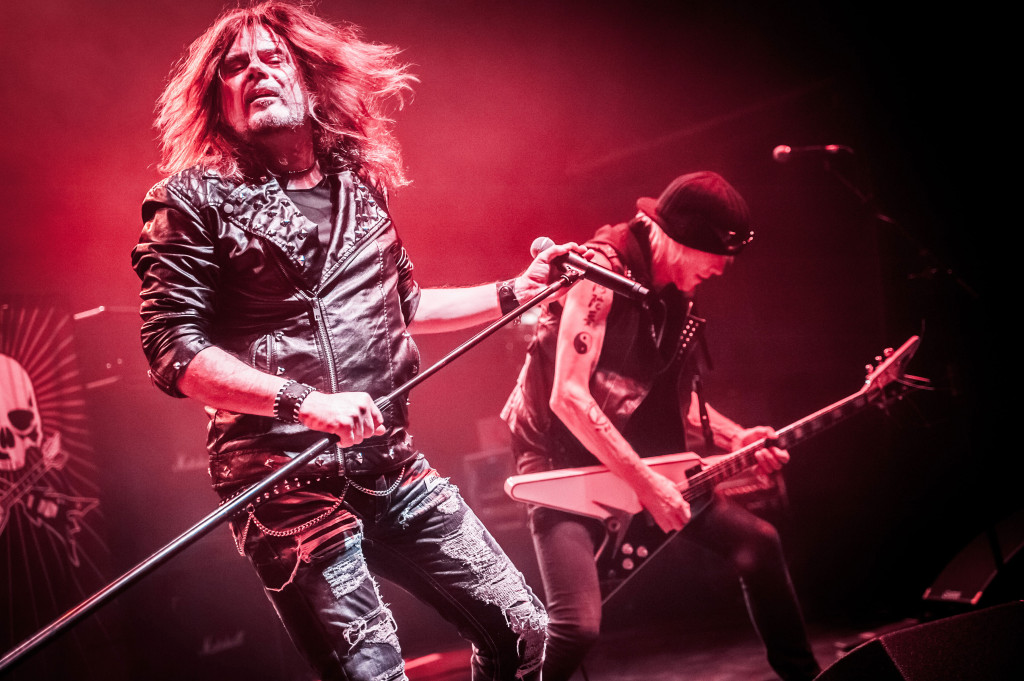Michael Schenker är en gitarrlegend. Han har alltid gått sin egen väg och var enligt honom själv mer ute efter att uttrycka sig, än att få en stor karriär som sin bror Rudolf. Han är nu aktuell med ett nytt album under namnet Temple of Rock och givetvis ringde Rocksverige upp den glade tysken. Han berättade bl a om alla band som ville ha honom som gitarrist, om hur självaste Paul McCartney kom att spela på en av hans låtar och det faktum att han för 25 år sedan skrev sin självbiografi, men förstörde den:
It was 400 pages, but I destroyed it. It was therapeutic and I´m glad I didn´t release it. It was too honest and just when I was about to release it, I thought; “What will my mother´s neighbors say?” It was so bloody honest,
The title of the new album is ”Spirit on a mission”. What kinda mission are you on?
Michael: (laughs) I was asked what I wanted to be remembered for and after a lot of deep thinking, I came up with that I´m a spirit on a mission, spreading the joy of music from a blaze of pure self expression. When it was time for me to come up with an album title, that one popped up in my mind straight away.
Is this your best release so far? Is the latest album always the best one?
Michael: Well, it´s not always the best, but I´ll tell you, I´m living in the now and I´m having a lot of fun and my whole structure of development, from beginning to now, I can say I´m definitely enjoying myself more than ever. That, together with a great vocalist and a great lineup, it´s very enjoyable.
Do you have a favorite song on the new album?
Michael: I love “Live and let live”. It´s the second single off the album and I really like that one. It´s like a train that never stops. It´s got energy and it´s melodic.
Does it get easier making albums?
Michael: You know, I love music and I don´t even really look at it as being easy or difficult. It´s self expression. I love doing it and I love to play and discover things. I love to find new notes, fresh notes, fresh colors that come from within me. That in itself, for me, is very energizing and very enjoyable. Music has been there all my life. When I started as a teenager, it was all about developing as a great guitarist and focusing on pure self expression. When I was 17, I stopped listening to music and I stopped copying other people. I knew what I had to do and that´s what I did. As a result of that, I kept myself preserved and fresh. I have never been over exposed. My middle years were more about experimenting and getting musical stuff out of my system, which I couldn´t have done with bands like Aerosmith or Ozzy Osbourne. Being in my own little world, I was able to enjoy that kinda stuff. I feel that now, because of the middle years when I was also going through the school of life, I have learned an awful lot and I now have all the tools to really enjoy what I´m doing. I feel like I´m revisiting my youth, my late teens. That´s where I feel I´m at. It´s almost like I´m reliving my youth, but with the education from the school of life, and I´m actually able to enjoy it now, like never before.
Up to the point when you were 17 and stopped listening to music and other guitarists, were there any guitarists that influenced you?
Michael: It wasn´t even music I was interested in. I was really hungry to see another guitarist. I was about 14 years old when the distortion guitar came to the forefront and that was really the spark. I started playing when I was nine, but when I was 14 there was something additionally going on with Black Sabbath, Led Zeppelin and so on. I knew that the distortion guitar was the best tool with which one can express oneself. All these things you can do with a single string is unbelievable. Anybody from the late 60´s, like Johnny Winter, Rory Gallagher, Jeff Beck, Jimmy Page, all those great guitar players, that´s what I was hungry for.
I´m sure you´ve been asked this many times before, but what was the reason for letting your strings dangle from the guitar? You never cut them.
Michael: Everything just happens with me. It happens based on circumstances. I never picked the Flying V because of its look. I ended up with it, because my brother (Rudolf) was playing it before me and I just had to play his guitar because I didn´t have my own. I heard the sound, combined with my amplifier and I just understood that I had a great sound there. I had a different amplifier than Rudolf had, so he had a different sound with his guitar. I liked the sound so much, so that´s how I got stuck with it and because of the shape, you use it in the best way possible and then it becomes unusual and you can´t even hold another guitar anymore, because you have developed a particular technique holding it. I had a certain way of doing my vibrato and that put me in the bent position and before I knew it, I had a particular look. For instance, people ask me why I have my cabinet upside down? It´s the same thing. It was going straight into my ear and I couldn´t stand it, so I decided to turn it upside down, so it would reflect down to the floor. It´s all just based on circumstances. With the guitar strings, it was never necessary for me to cut them off. Why should I cut them off? It´s just extra work. Just put them on and play, that´s what I thought. (laughs)
How did you end up working with Michael Voss (producer) in the first place?
Michael: It´s funny how step by step things line up. Gary Barden was recording with him and when it was time for me to make a demo, I remembered Michael and I gave him a call. I needed a guide vocal for the demo, so I asked him and when he started singing, I asked him to sing on the album. I was rehearsing with Herman Rarebell, Pete Way and Francis Buchholz and they heard the demo and wanted to become the rhythm section. Then when it came to touring, Michael wasn´t available and Doggie White helped out in Europe. Pete Way didn´t do very well and then I asked Herman to ask Frances if he would like to help out and he was more than happy to do it. That was the beginning of this lineup.
Were you and brother Rudolf competing with each other when you were younger?
Michael: Not me. Absolutely not. Maybe he did, I don´t know? For me, music is just about expression. If you´re focusing on a trend, then you´re in a race and that´s different. I guess my brother was focusing more on trends and maybe he studied anything that would keep him within the trend, but I would do the exact opposite. I would do anything to stay away from that and just focus on self expression. That´s the only thing that makes sense to me and that´s the only place I wanted to be in and it´s the only place where I can enjoy myself. There´s no pressure and complete freedom. That´s the reward in itself right there. We had two completely different visions. My brother had the vision of being in a famous band and my vision was to become a great guitar player. I´m six and a half years younger than my brother, so maybe I was born to help him out? I jump started the Scorpions with my songs, then I left for UFO and then I came back to jump start them for America. Then I went on my own and came back in ´93 to do a tour with them in England and get the houses full. Whenever he needed me, I was available to help him, but it was not a necessity for me to have. I admire my brother´s success and how he made it with so little. He´s more like a magician than a musician.
The Scorpions album “Love drive” was recorded 36 years ago. What do you remember from the recordings of that album?
Michael: I had just left UFO and my brother heard about it and he then asked me if I would like to help out? He sent med “Coast to coast”, “Holiday”, “Love drive” and “Piece of meat” and I worked on those. It turned out so good that they persuaded me to be in the band. It was a transformation period for me and I wasn´t quite sure of what I was doing. Then Aersomith also approached me at the same time. It was very confusing, because I didn´t know what the next move would be. Then it caused all this tension between Mathias (Jabs) and them and it was a very difficult time. I couldn´t say no and it was very difficult to get away from that. My brother was very upset and that made me upset and it was just awkward. Same thing with the offer from Aerosmith. I kinda knew I shouldn´t be doing it and yet I went over there to see what was happening, but nothing really happened because everybody was too drunk. The Aerosmith rhythm section was the first MSG rhythm section. I went to Boston and Steven Tyler got sick and ended up in the hospital. Peter Mensch was managing me at the time and said that Joey Kramer and Tom Hamilton would be interested in doing the MSG album. I rehearsed with them, but then Steven got better and they reformed Aerosmith. Then at some point I got together with Billy Sheehan and Denny Carmassi and it almost made it into an album, but then it eventually became Simon Philips and Mo Foster. And Paul McCartney played on our second MSG album. He came in with his bass. Our bass player couldn´t make it to the studio and Paul was next door, so Cozy Powell asked Paul. He came over whistling with his bass on his shoulder. We started playing and he played on “Secondary emotion”.
Were you a fan of The Beatles?
Michael: Absolutely!
Did you get star struck?
Michael: In those days I connected in a very strange way with everything and it was all normal for me. Paul was sitting next to me at a round table and when I look back at it now, it´s different, but when it actually happened it was nothing unusual. It´s kinda weird. I wasn´t really aware of it until 10-20 years later.
Besides Aerosmith, Ozzy and The Rolling Stones, were there any other bands that approached you?
Michael: Yes! Whitesnake, Deep Purple, Phil Lynott, Ian Hunter and even Lemmy from Motörhead. I actually went to his home and somebody told me that he never takes his shoes off and I said; “No way!”. It was the weirdest thing. I think later on people realized that it was no point in asking me. Everybody knew that I wouldn´t join anybody. I was on my own little journey.
Were there any of these offers that you later on regretted turning down?
Michael: No, I would´ve ha regretted it if I had joined, I can tell you that. There was the temptation. You know you shouldn´t do it, but you´re tempted to do it. I was tempted, but I was lucky that I didn´t do it.
This “supergroup” Contraband that was put together? Was there ever a plan of it becoming more than just one album?
Michael: I´m sure there was a plan. I had a break for six months before the next McCauley Schenker album and it was the same management. It was actually a fun thing to do and kind of a fine album. In a way there was a very unique spirit there, but somehow it wasn´t meant to be. After the first show there was a big fight between Tracci Guns and Richard Black. The chemistry didn´t work and there was no point in carrying on.
If you ever got the chance to do some time travelling and go back to your 17 year old self, what advice would you give yourself?
Michael: I would say; “Jump and time travel to 2015!” (laughs)
Have you ever thought of writing a book?
Michael: I did. In 1990 I wrote a book. It was 400 pages, but I destroyed it. It was therapeutic and I´m glad I didn´t release it. It was too honest and just when I was about to release it, I thought; “What will my mother´s neighbors say?” It was so bloody honest, but the reason for writing it was that I had a realization that if I could let the whole world know who I am, I would have half of the key to the place of freedom. That inspired me and I was really ready to let go. Today I know it was a test to help me transform myself into the next level. It was a very honest moment. It was an eye opener and it took a lot of weight off my shoulders.
You don´t think you´ll write another one?
Michael: If I write a book it will maybe be really close to the end of my life. Making it very honest. I prefer to write something, not because it sells, but because of explaining of how it really was. It´s not all unraveled yet and there is more stuff to come.
A final thing, how did you end up I Sussex?
Michael: When Herman and I were invited to the Scorpions in 2009 to play a stadium in Greece, I think he was already living there and I was kind of living everywhere really, hotels mainly, he told me to come to Brighton. We bumped into Pete Way there and that´s how we got together and started jamming. It all happened step by step. That´s when Herman and I kinda clicked. It´s a nice little place and everybody seems to be under 20 years old. Then eventually we bumped into Phil Mogg and we were all almost living next to each other next to the ocean and we never knew. (laughs) It´s the funniest thing. All of a sudden Phil Mogg showed up with his dog. (laughs) It was like a movie, like I was dreaming or something. Sometimes you wonder if there´s more than meets the eye and things are drawn together for some reason, some energy or something? It´s really weird.
Text av: Niclas Müller-Hansen
Foto: John Bull, Steve Johnston, Lurence Harvey (promobilder)
